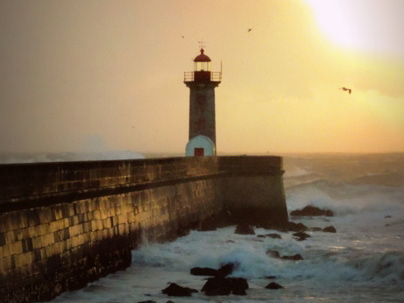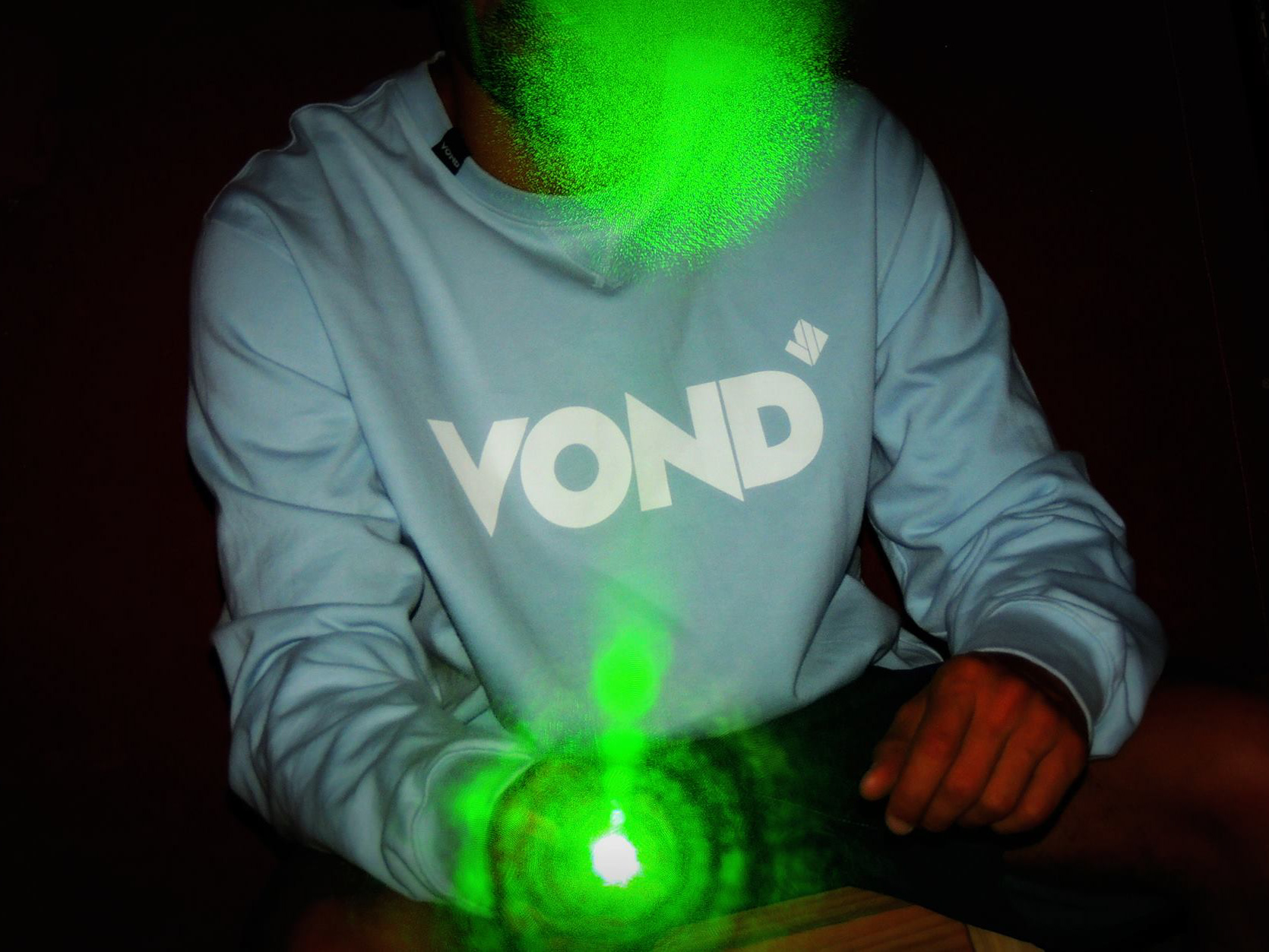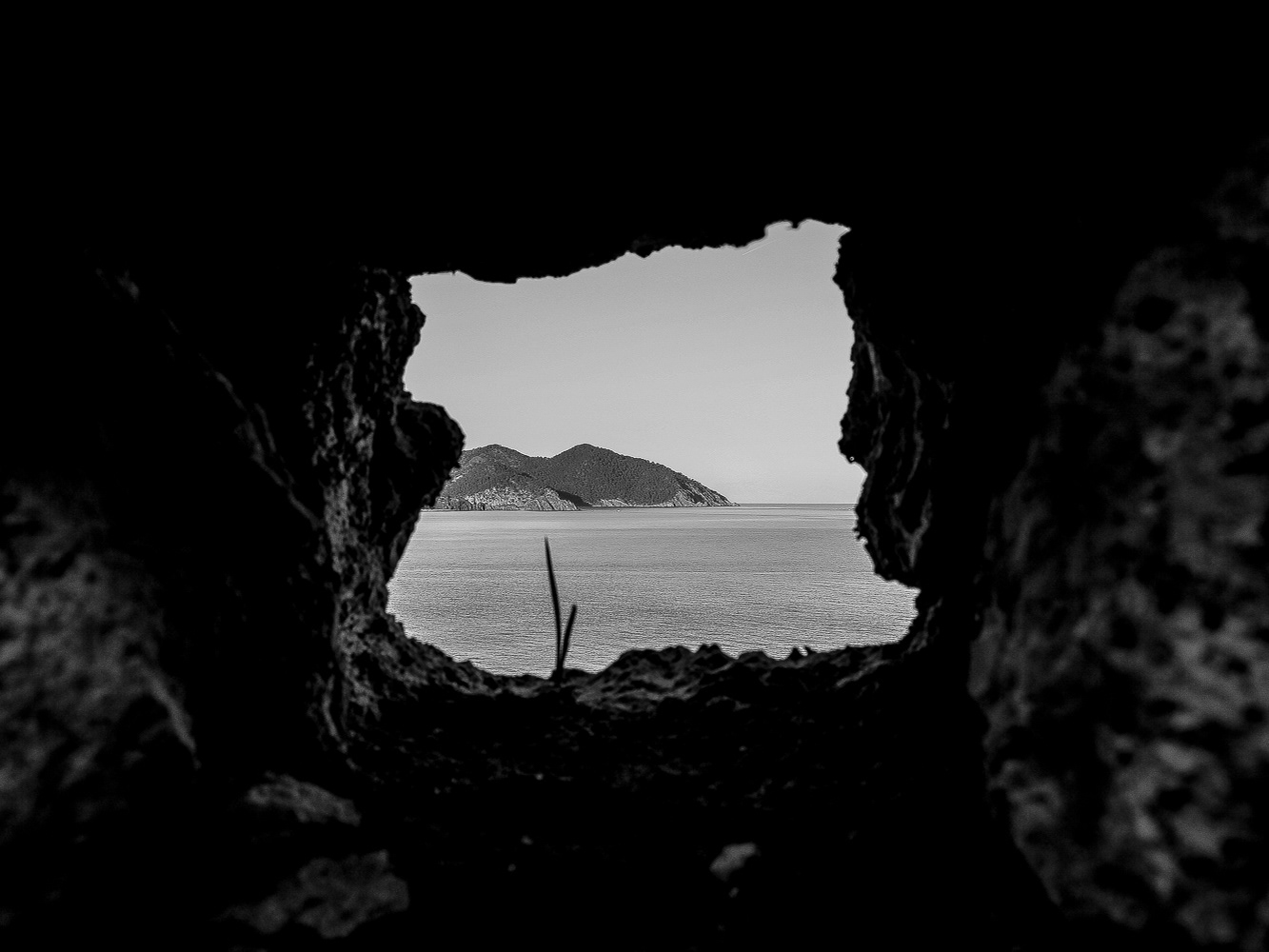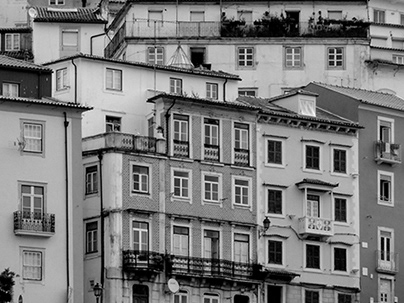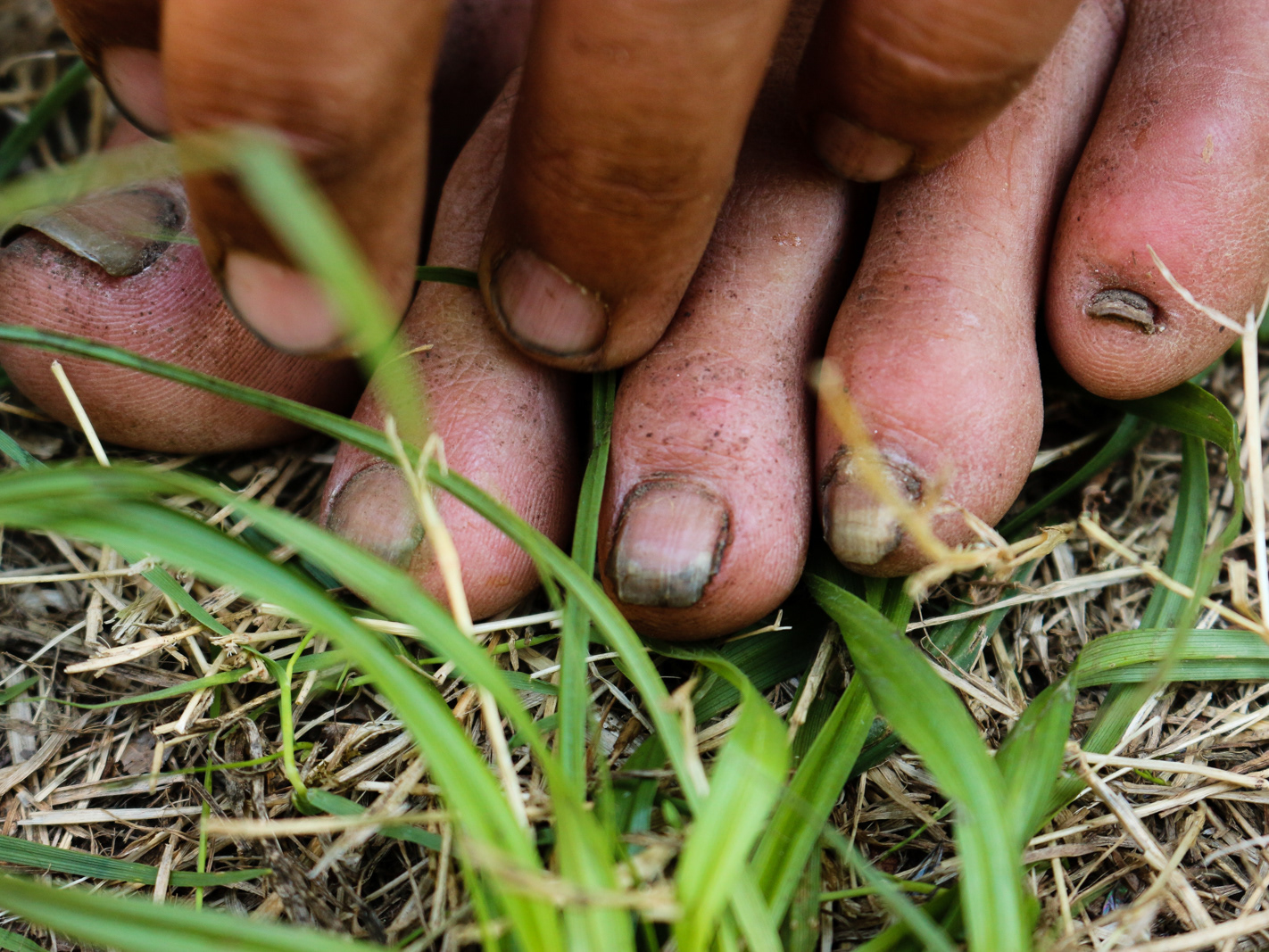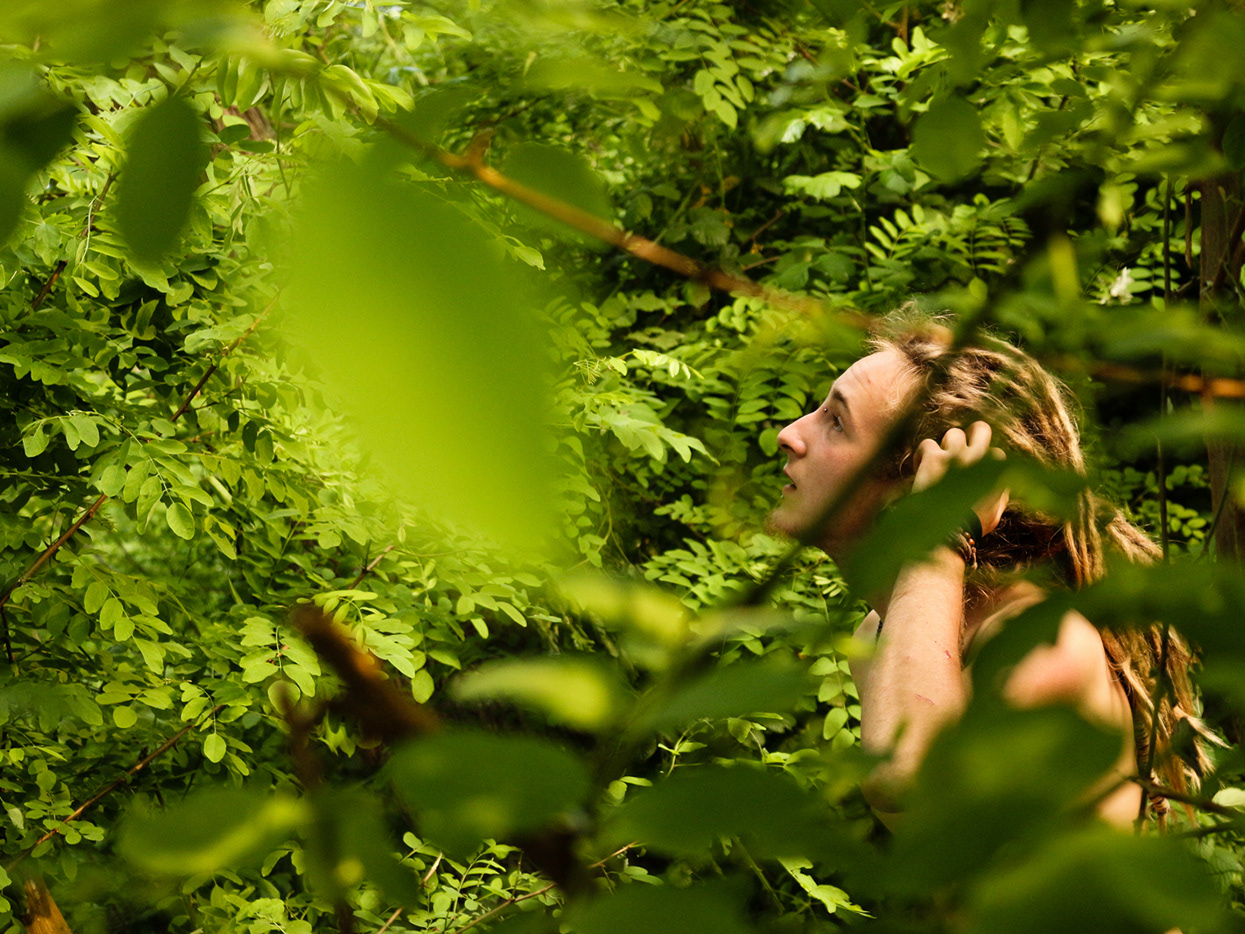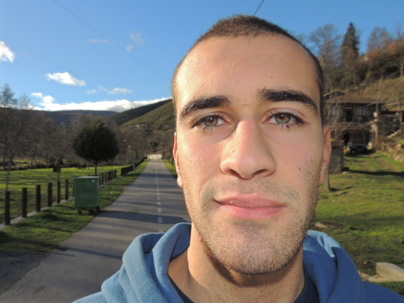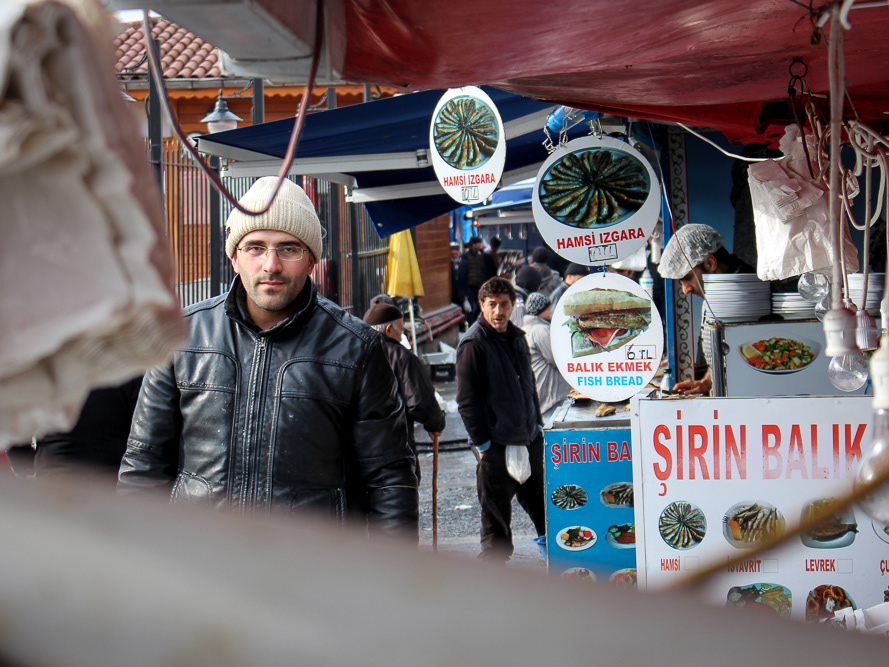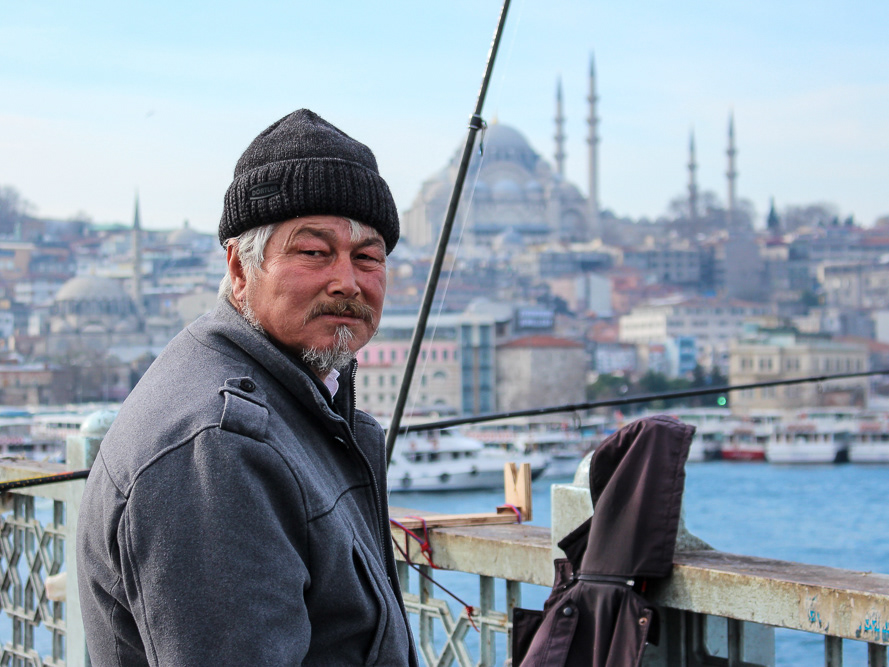- DOWN AT THE BASE OF THE PYRAMID -
A photographic social study about poverty in Cairo
The one who rakes the Pyramid - A man rests in the base of one of the Giza Pyramids, his broom next to him. One of the many workers who has seen better days for his business, since the number of visitors has been falling dramatically due to the increase in perceived threats of terrorism.
In December 2016, I joined the « Ezbet Project » : a multidisciplinary group of young people from different countries that accompanies inhabitants in the hope to improve their life conditions in the informal neighborhoods of Cairo. We went to some of the poorest places of the megalopolis, out of the turistic circuit, far far away from the top of the pyramid. The goal was to observe and analyse, try to understand life there and the circunstances that we could possibly improve in a near future. Obviously, there were some worries about our safety. However, I felt comfortable quiet fast, in the back of the group, taking my time to smile to the people, sharing the photos I made through the little screen of my camera, sometimes even passing them the camera to take me in picture together with their friends. People were so curious about us and I had but good feelings and open smiles. Language was a big barrier, but there is a whole wide universe of unspoken communication.
It was impressive to see the love blooming like flowers in the middle of the garbage and the acidic smells, the humbleness of these workers who fight for their survival and the one of their families.
Kid, Desert, City – The littelest guide walks back from his “see the pyramids on a camel” tour. Sand desert and urban jungle in Ghiza. // Le plus petit guide sur le retour de son tour “voir les pyramides en chameau.” Désert de sable et jungle urbaine à Ghiza.
- TOUT EN BAS DE LA PYRAMIDE -
Une étude sociale en photos autour de la pauvreté au Caire
En décembre 2016, j’ai intégré le « Projet Ezbet » : un groupe pluridisciplinaire qui accompagne des habitants avec l’espoir d’améliorer leurs conditions de vie dans des quartiers informels du Caire. Ils nous ont menés dans certains des lieux les plus pauvres de la mégalopole, et nous ont mis en garde : gardez vos mains visibles, ne vous attardez pas, restez groupés. L’objectif était d’observer et d’analyser, mais la peur était omniprésente. Loin des circuits touristiques, nous sentions tous les regards posés sur nous. Mais en m’attardant en arrière du groupe, décidant de prendre le temps de sourire aux habitants, de partager les clichés sur le petit écran de mon appareil, j’ai été étonné de voir l’amour sincère qui fleurit parmi les ordures, la chaleur humaine, les sourires, l’honnêteté de ces travailleurs qui luttent pour leur survie et celle de leurs proches. Comme dit mon ami Omar El Hadidy : le Caire est le paradoxe de tous les paradoxes.
Looking through my window – Our friend Nedaa looking at the Manshait Nasser neighborhood. She is a volunteer for Ezbet Project and she has hope behind her worried eyes. She loves Edith Piaf and dreams of visiting France, one day, when her passport so allows. // Notre amie Nedaa regardant le quartier Manshait Nasser. Elle est bénévole du projet Ezbet et il y a de l'espoir derrière ses yeux inquietes. Elle adore Edith Piaf et rêve de visiter la France.
Early Morning – The sun rises on a large busy road at the entrance of the Ardel Liwa neighborhood // Le soleil se lève sur une grande avenue animée à l'entrée du quartier Ardel Liwa.
My neighbourhood - the cemitery. Cairo is a gigantic chaotic city, and it keeps growing and growing. Informal settlements are everywhere, even cemiteries become the home of many, like this one in the picture, close to Ezbet.
In the Ardel Liwa neighborhood // Dans le quartier Ardel Liwa.


Waiting for a friend to play – In the Manshiat Nasser neighborhood, more known for foreigners as Garbage City // Dans le quartier Manshiat Nasser, plus connu pour les etrangers sous le nom de Ville Poubelle.
Recycle is Survival – Our friends explained us that the inhabitants of this particular neighborhood have suceeded in raising quiet a good business through gathering, separating and selling Cairo's garbage. Walking there makes it easy to understand how the place got the name of Garbage City.
Daily Operation – This is part of the visual cenarium of Cairo. Most of this trucks carrying a pyramid of garbage are heading to the so called Garbage City, the neighborhood of Manshiat Nasser, where garbage is turned into gold.
In Cairo's chaotic roads, the tuk tuk remains solid as a way of transportation.
This old man told me I can call him Raul. He was workin on a Greek boat back in the days, and travelled through lots of countries. Then he worked in prisons back in Egypt, and said those were the hard days, and dangerous. Now he is selling drinks and snacks in a kind of turisitic street in Cairo. Speaks lots of languages and passes his day geting to know the ones who stop some minutes to talk with him like I did.
I found this kid in the begining of the afternoon. He was very nice and always had a smile to give. In the end of the afternoon I found him again. He sells this lupin beans, very appreciated in Portugal, but also here in Egypt and many other places in the world.
Selfie of Equality - In the selfie generation we're living times of preocupation, too much tension in the globalization. Let's be strong today for equality to prosper. And hope the next generations will have a better world for them to live in. Let's bring some change...
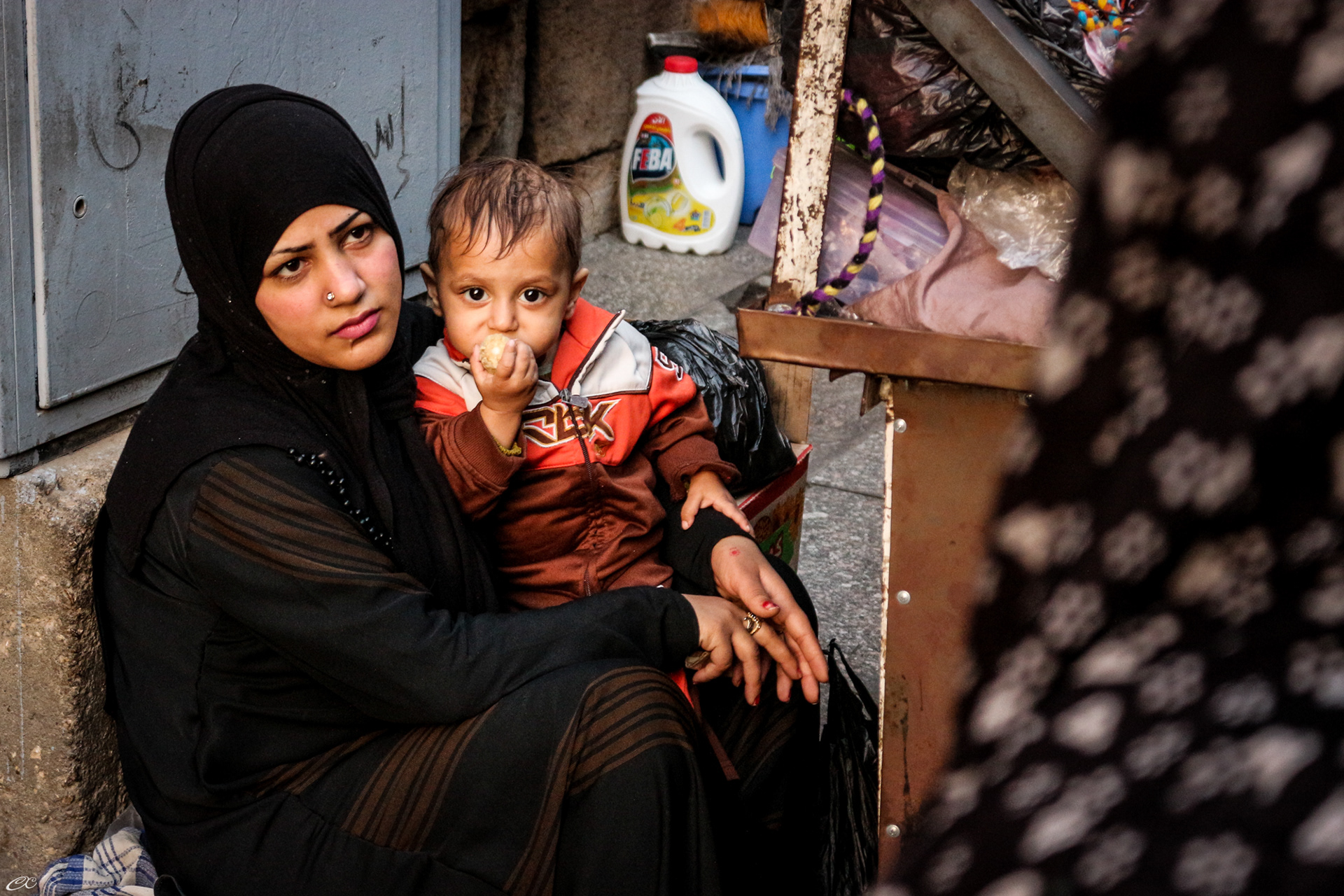
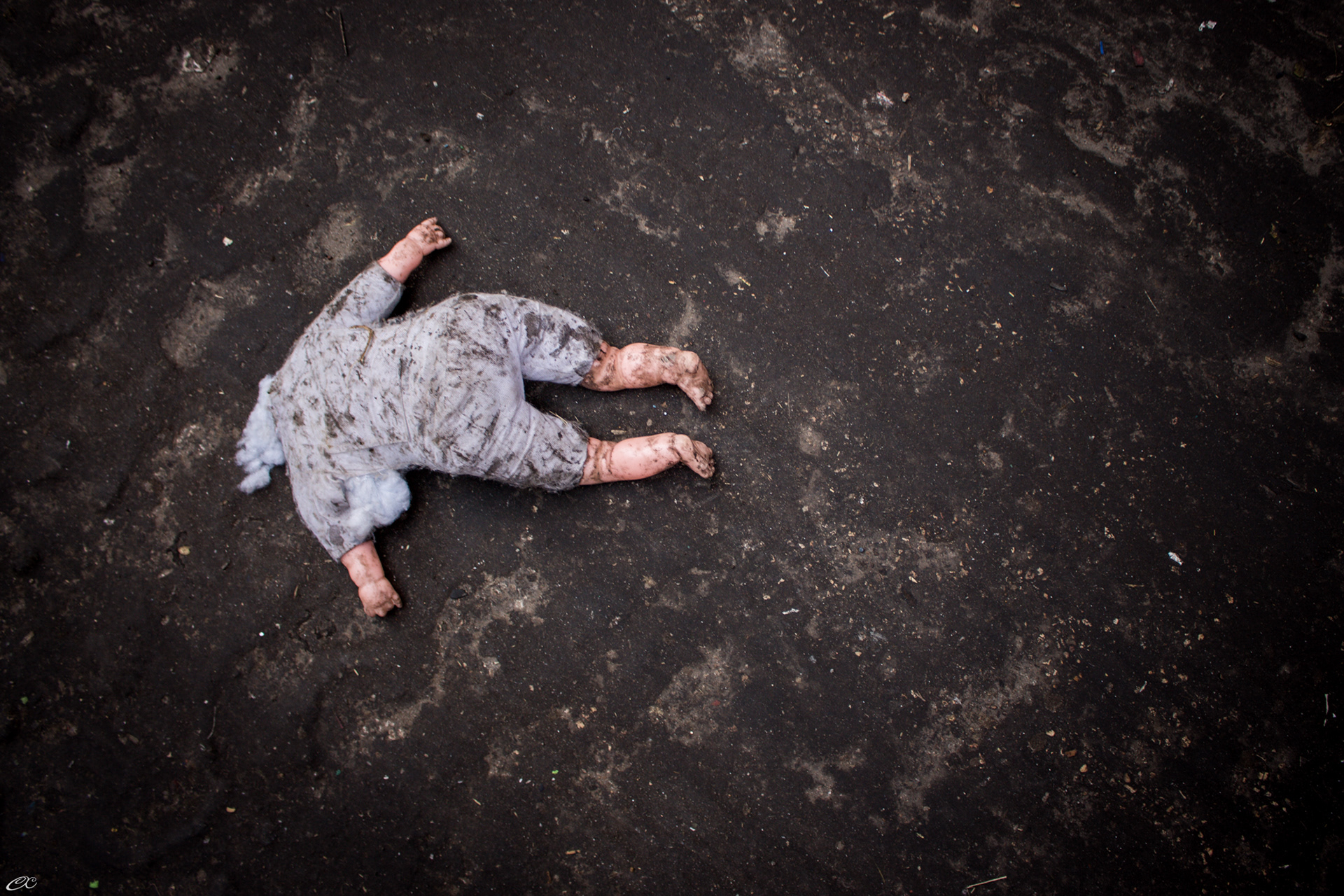
This man was not very happy when he saw me taking a photo of a woman, maybe his wife; so I smiled to him and took him a picture while he was trying to scare me with his look. I kept smiling and showed him the picture and we end up shaking hands smiling at each other.
In my hand I got the key – A kid walks by the streets of the Ardel Liwa neighborhood. // Un enfant marche dans les rues du quartier Ardel Liwa.
Joe Boxer Tuk Tuk Driver – At the entrance of Garbage City, we met some kids who drive Tuk-Tuk taxis // On a rencontré devant la Ville Poubelle des enfants qui condusent des taxis Tuk-Tuk
Love in the Garbage – We call it recycle, they call it survival. Walking in the “Garbage City” was one of the most perspective changing experiences I ever had. // On appelle ça recyckage, ils appellent ça survie. Marcher dans la “Ville Poubelle” fait partie de ces expériences qui mont le plus fait changer de perspective.
Family recycling – What seems to be a father and his children look for survival in the middle of the garbage, in the streets of the Ardel Liwa neighborhood. // Il semble qu'il s'agit d'un père et ses enfants, cherchant leur survie au milieu des ordures dans le quartier Ardel Liwa.
A kid passing by in the back of a truck, in the neighborhood of Manshiat Nasser. // Un enfant qui passe, à l'arrière d'un camion, dans le quartier Manshiat Nasser.
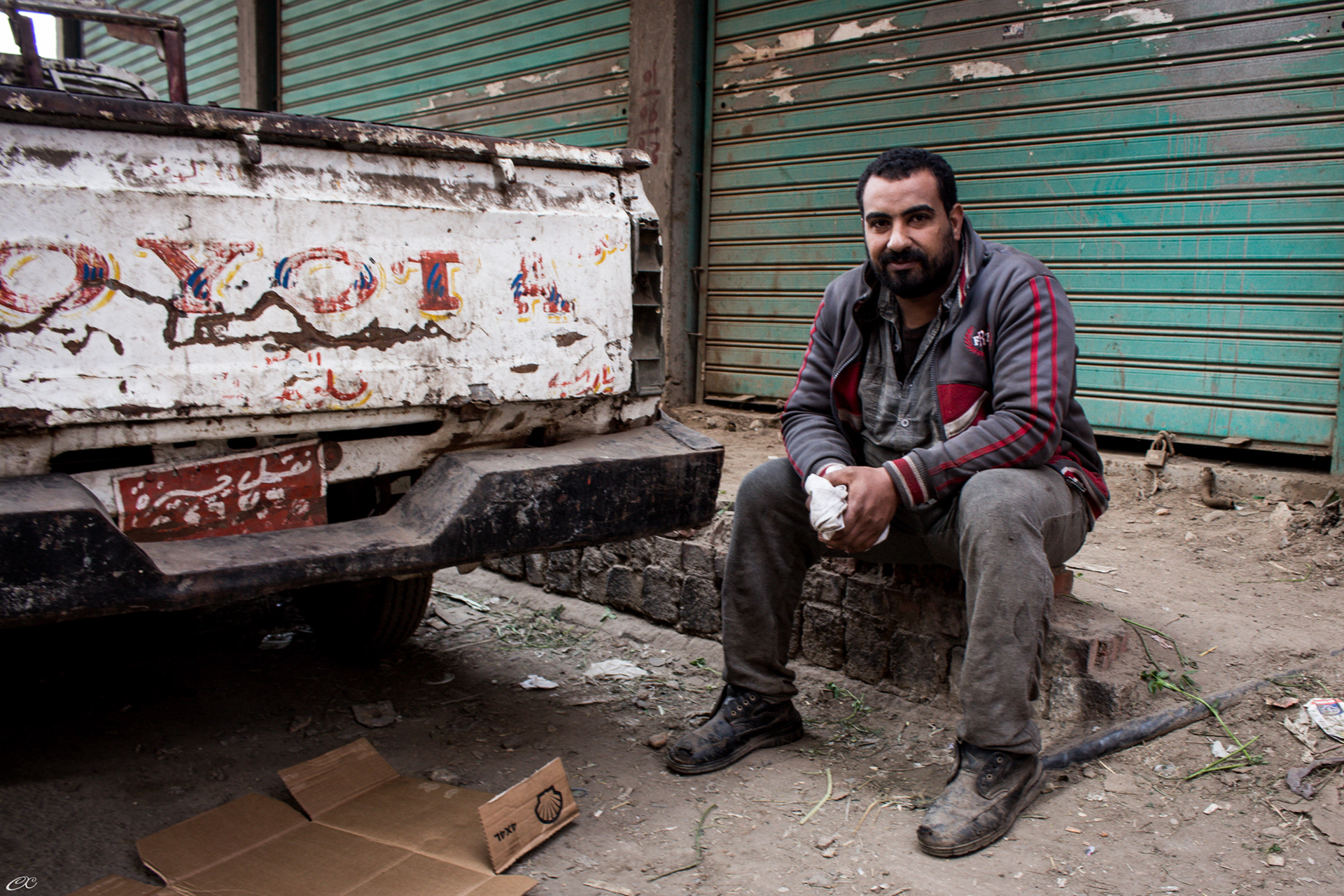
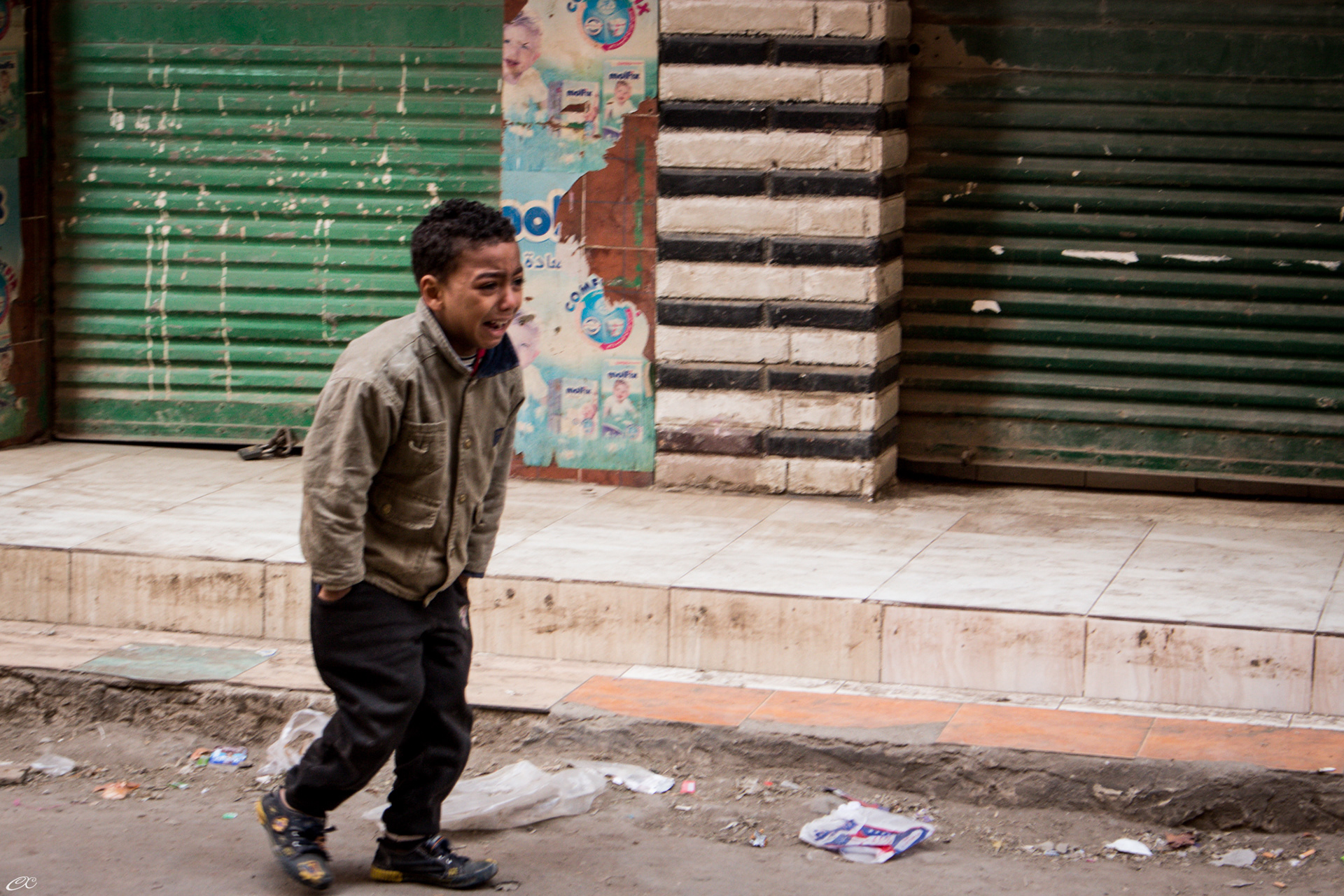
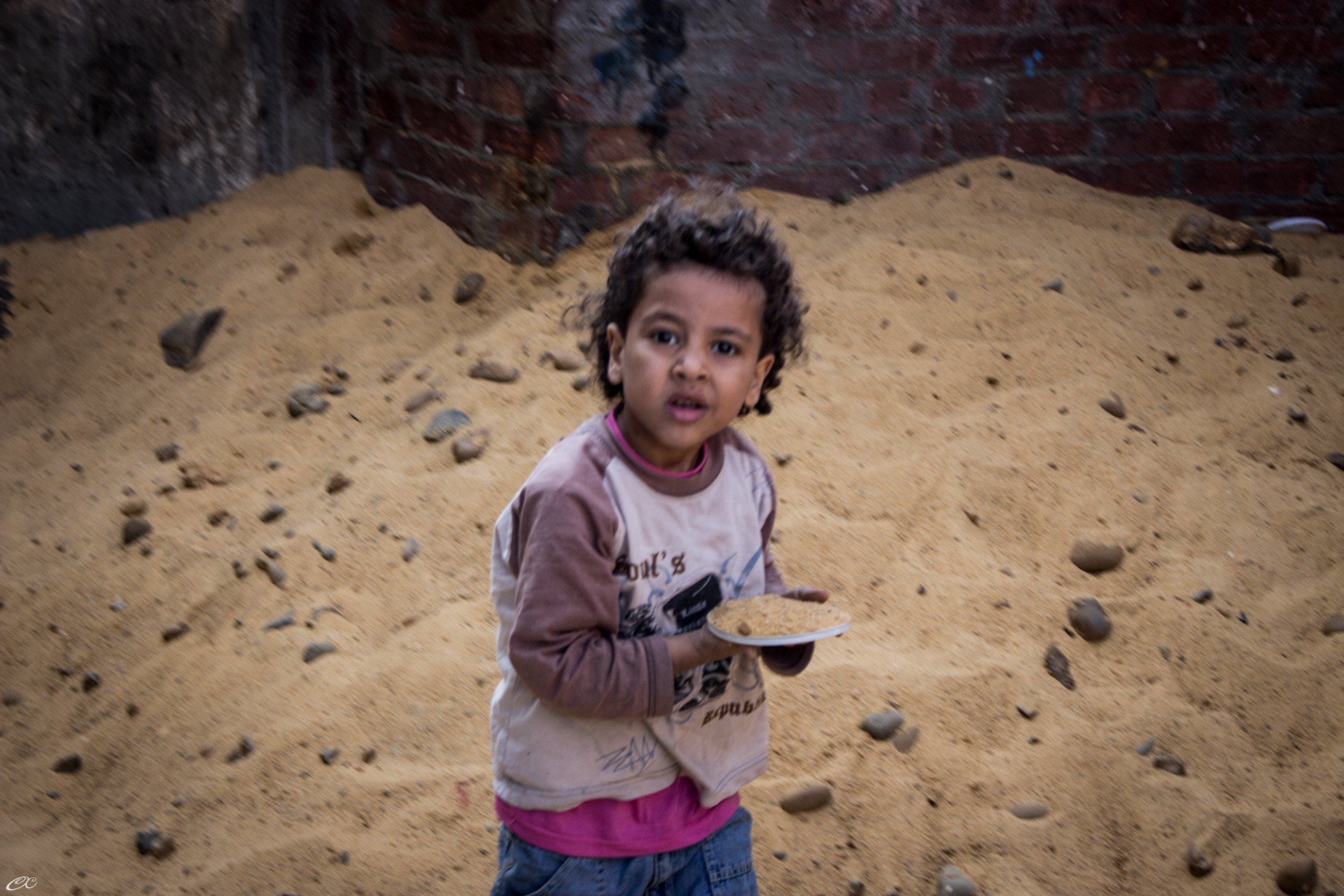

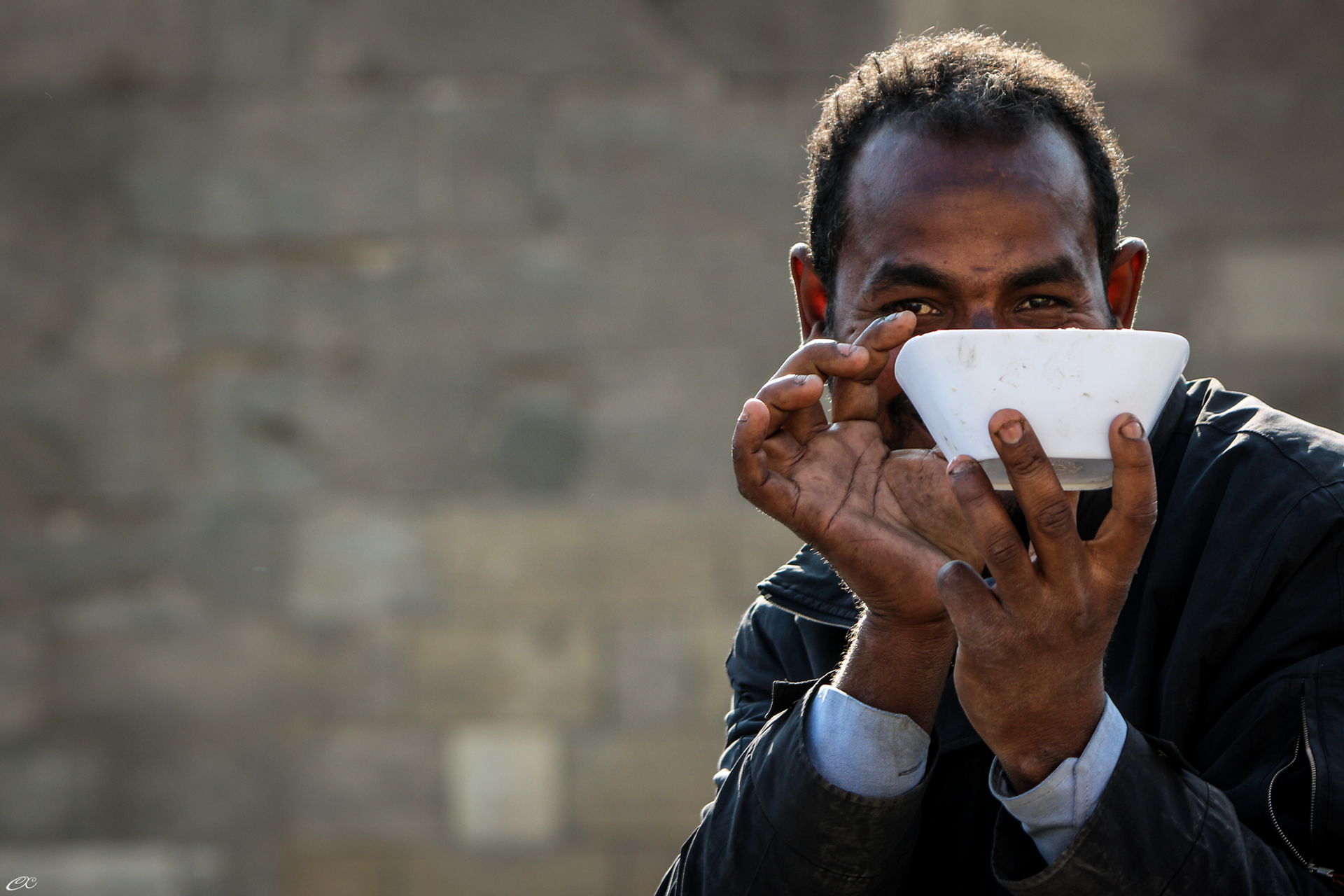
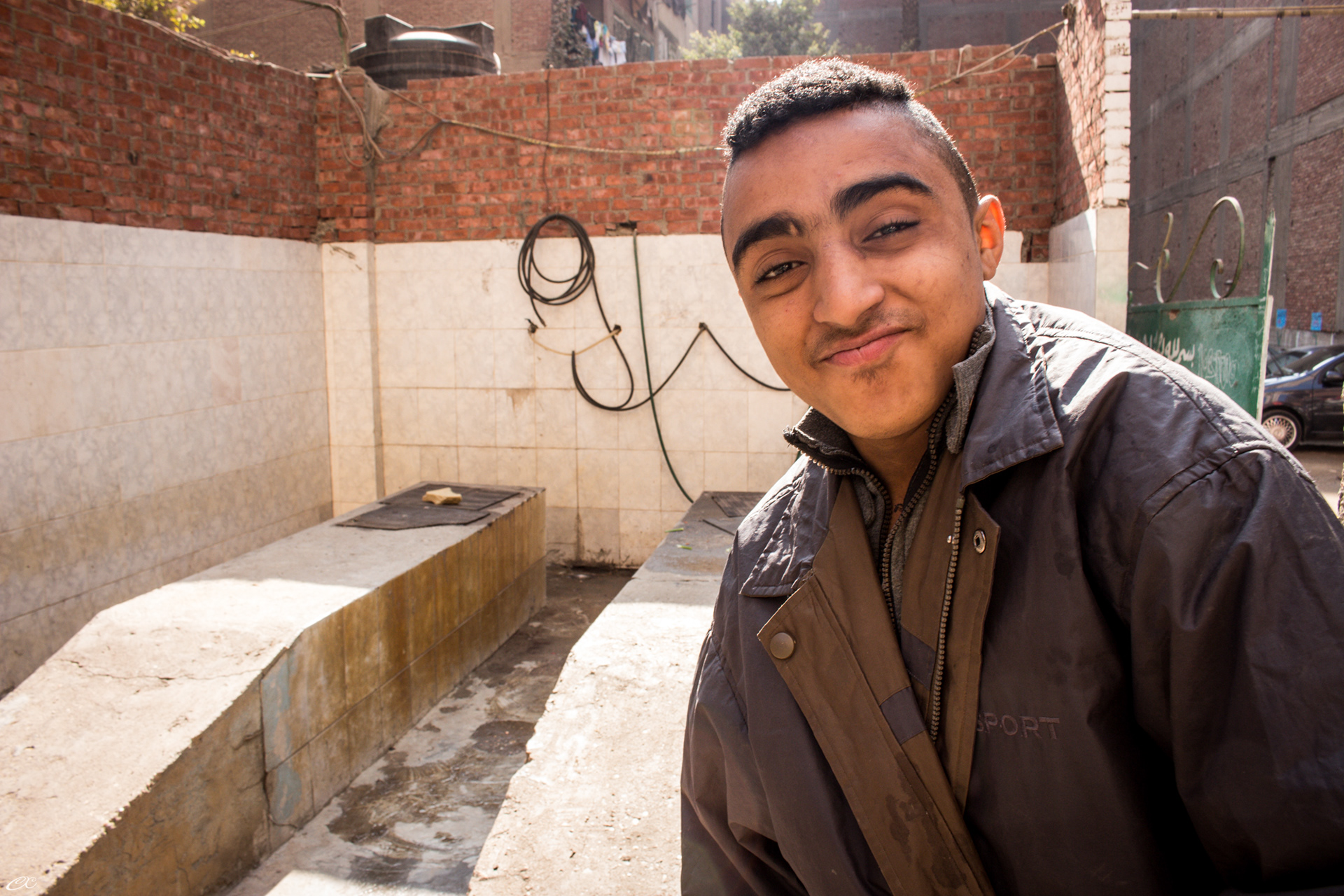
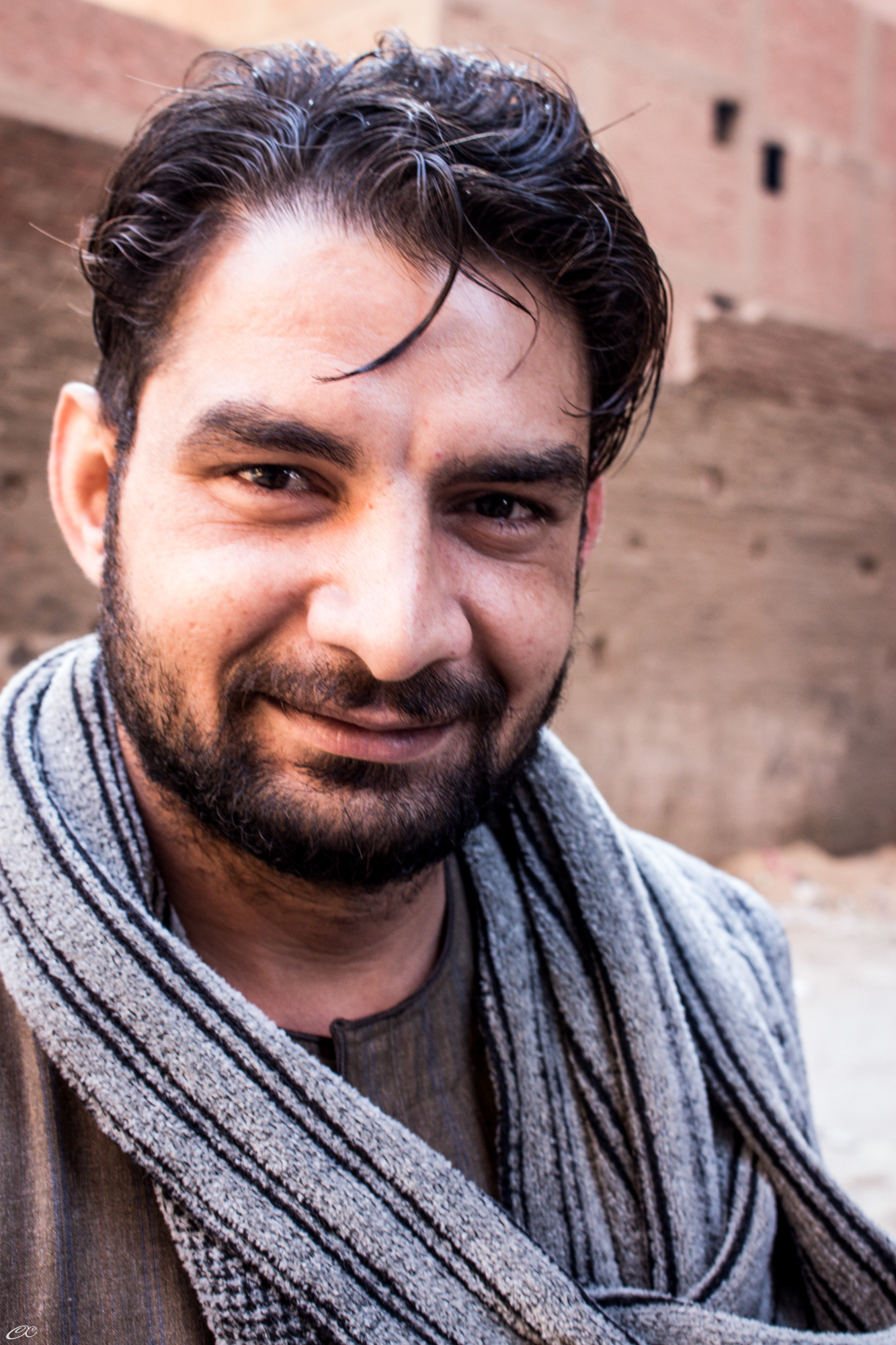
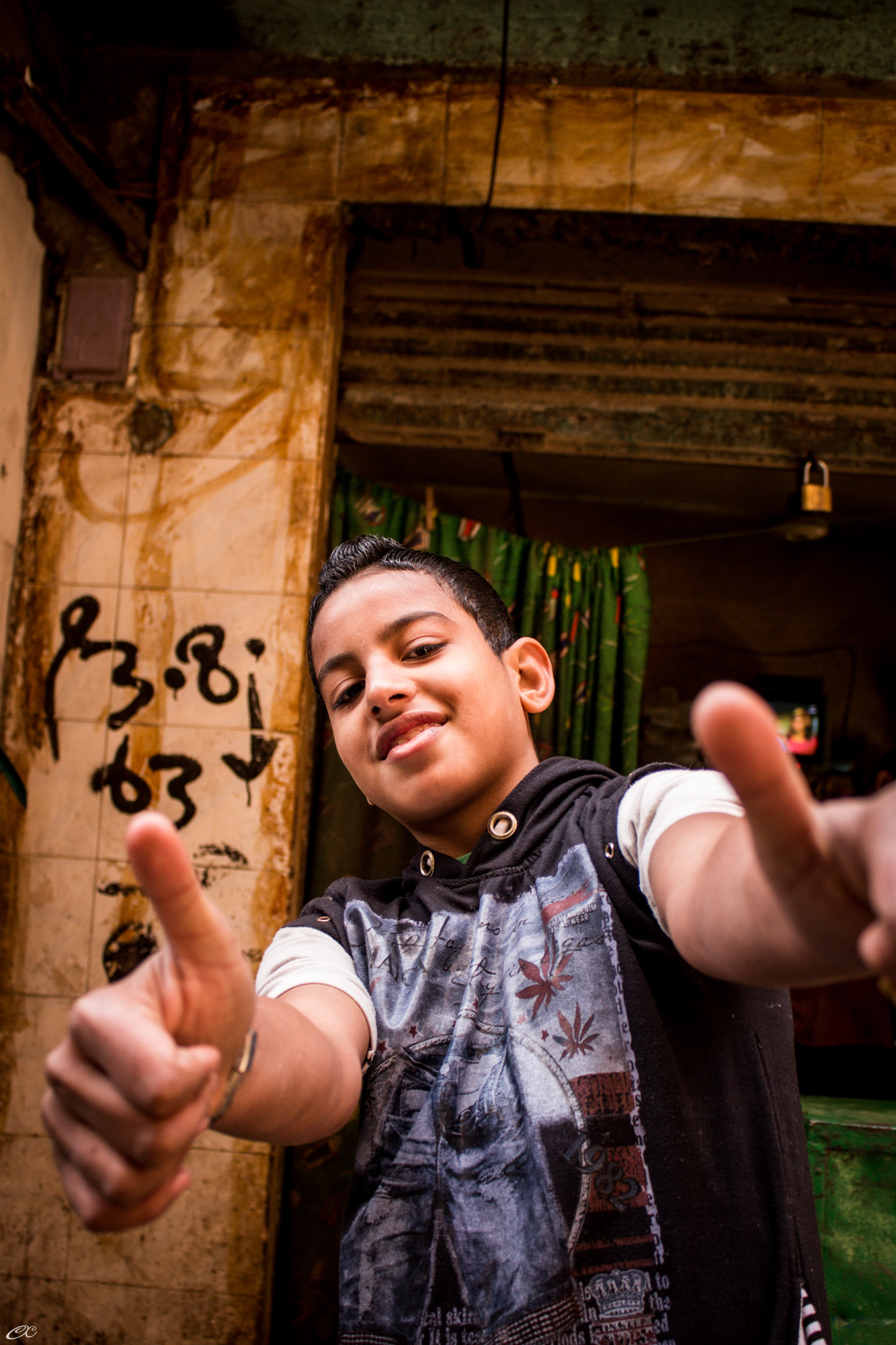
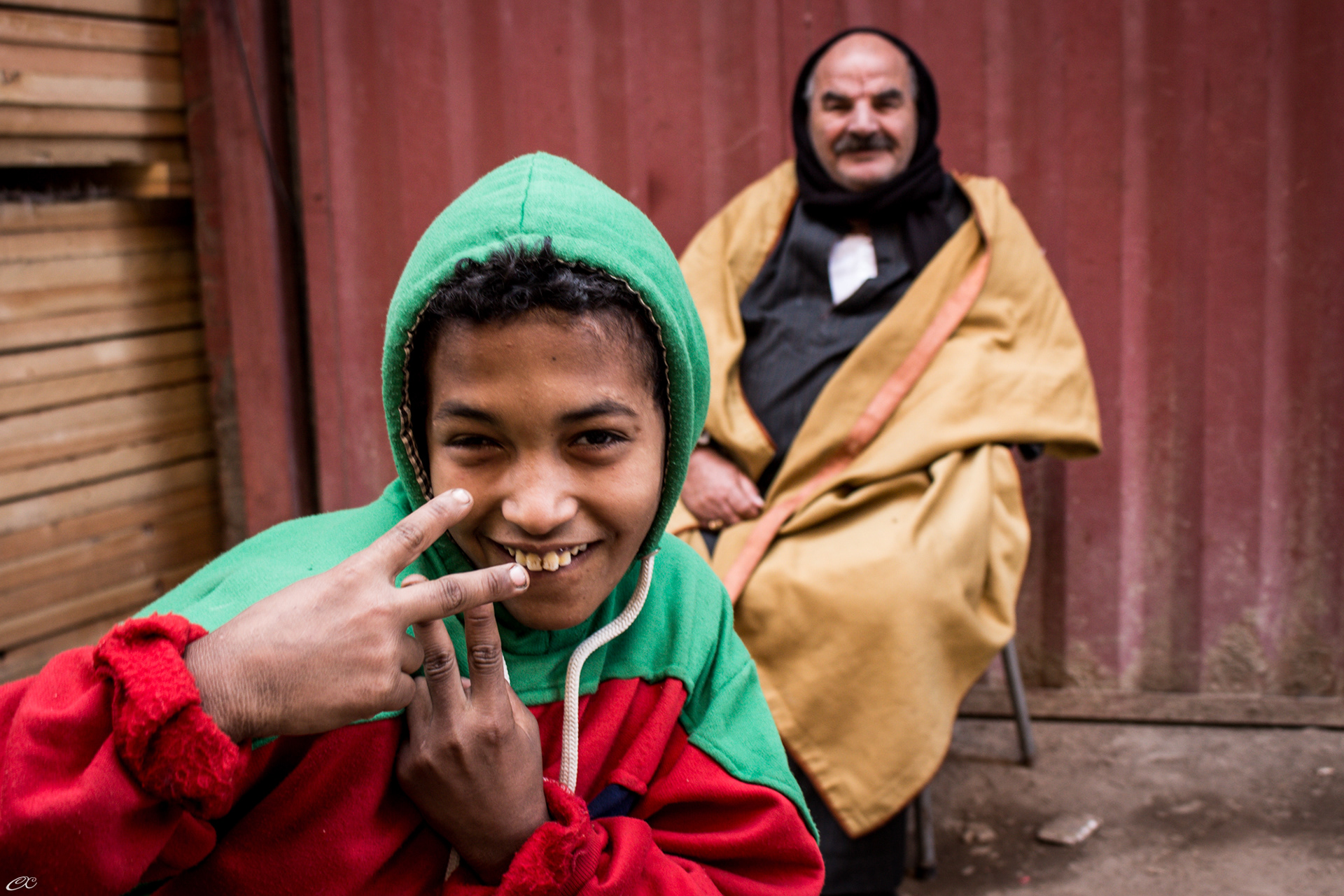
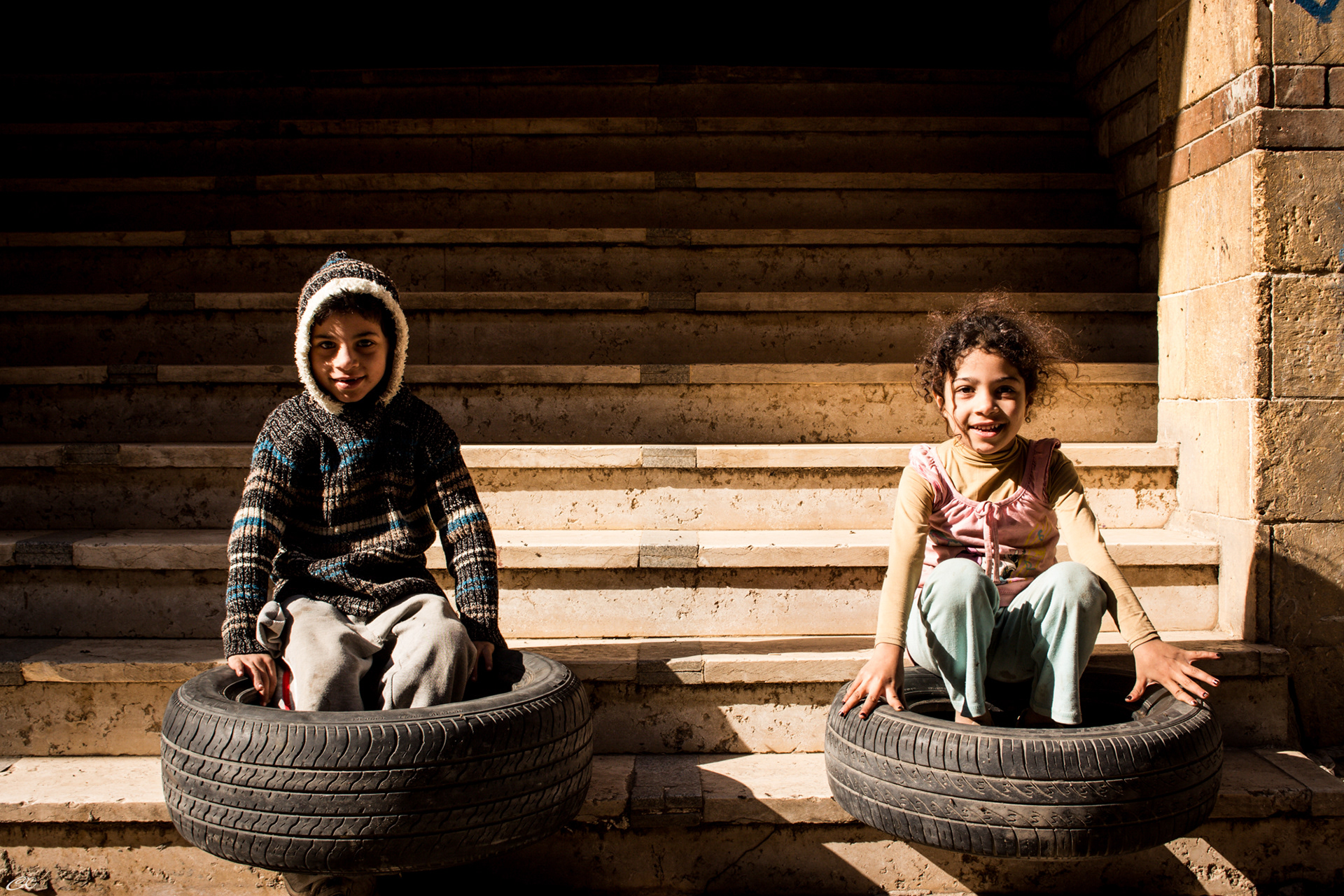
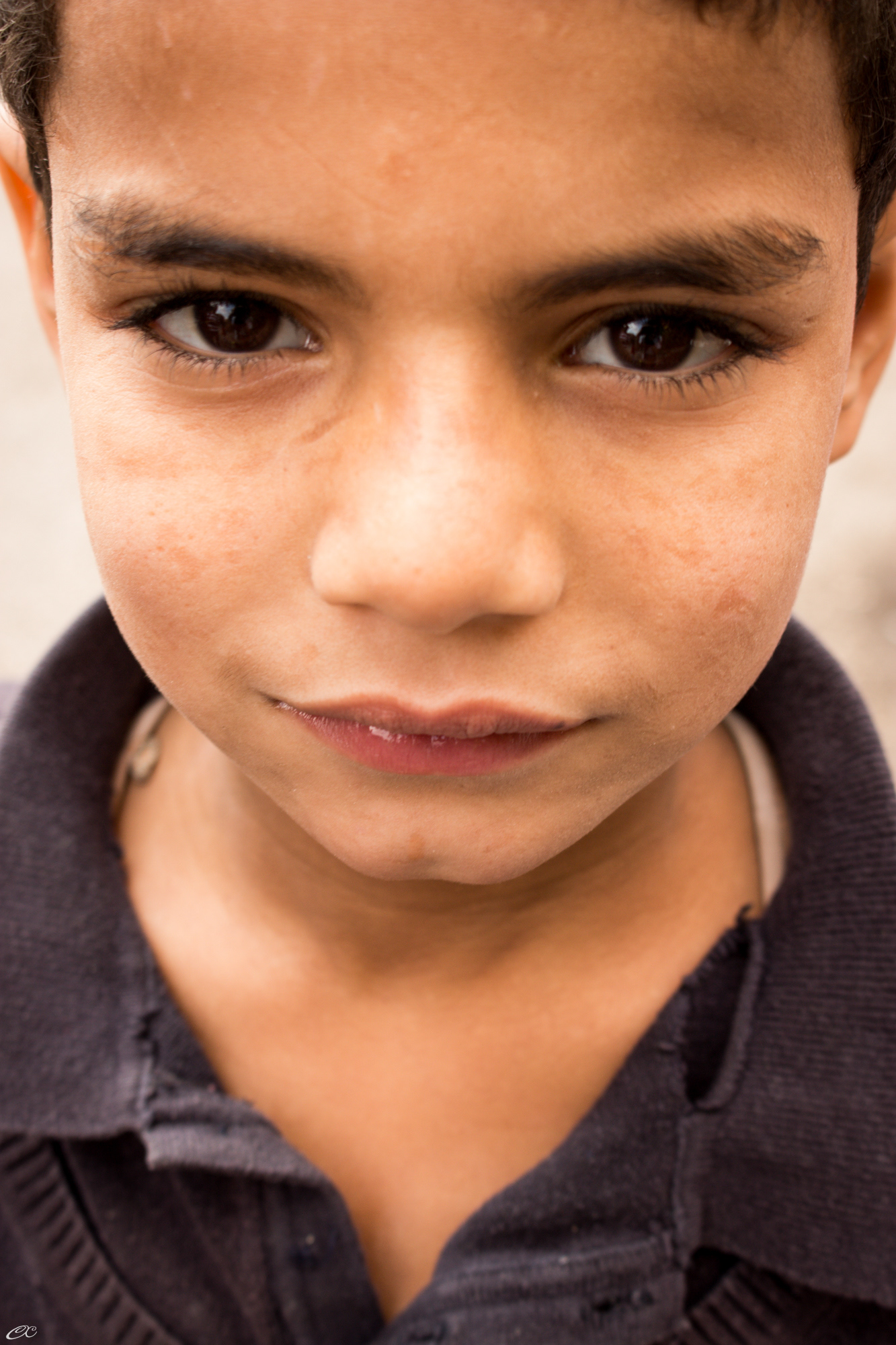
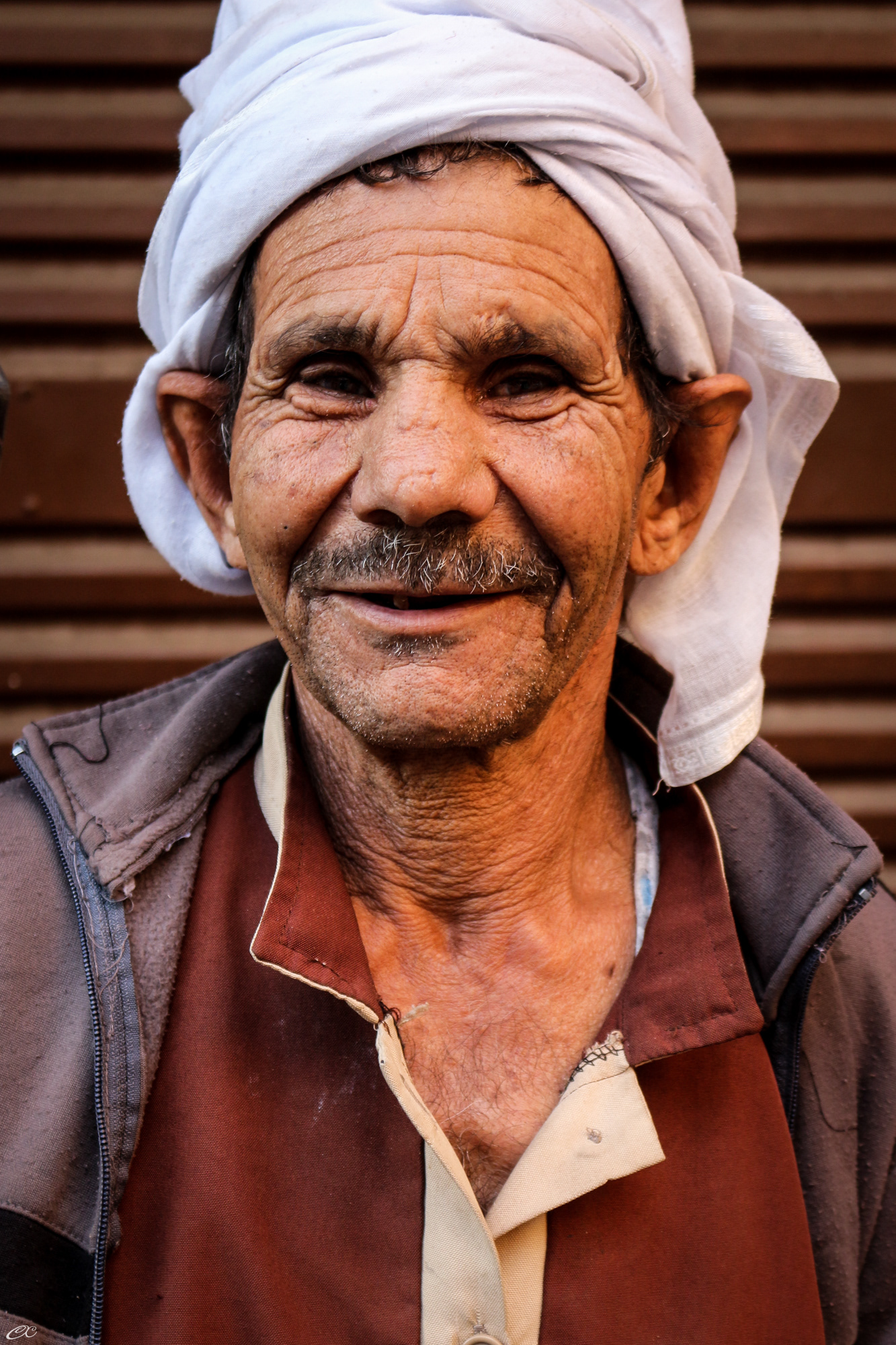

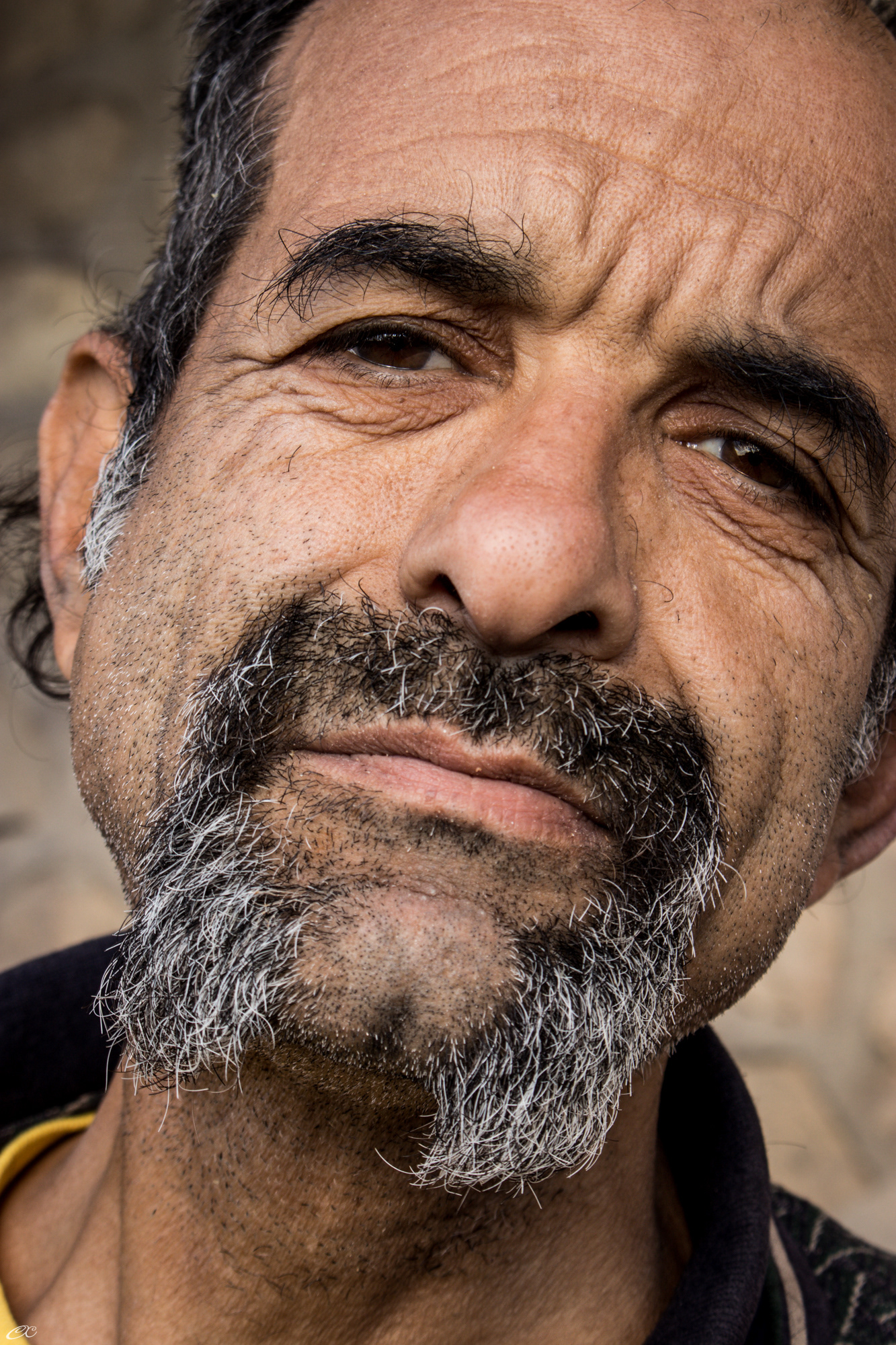
3 Kids - In the Manshiat Nasser neighborhood, more known for foreigners as Garbage City // Dans le quartier Manshiat Nasser, plus connu pour les etrangers sous le nom de Ville Poubelle.
The Baker – A kid that makes bread in the Ardel Liwa neighborhood // Un enfant boulangeur dans le quartier Ardel Liwa.
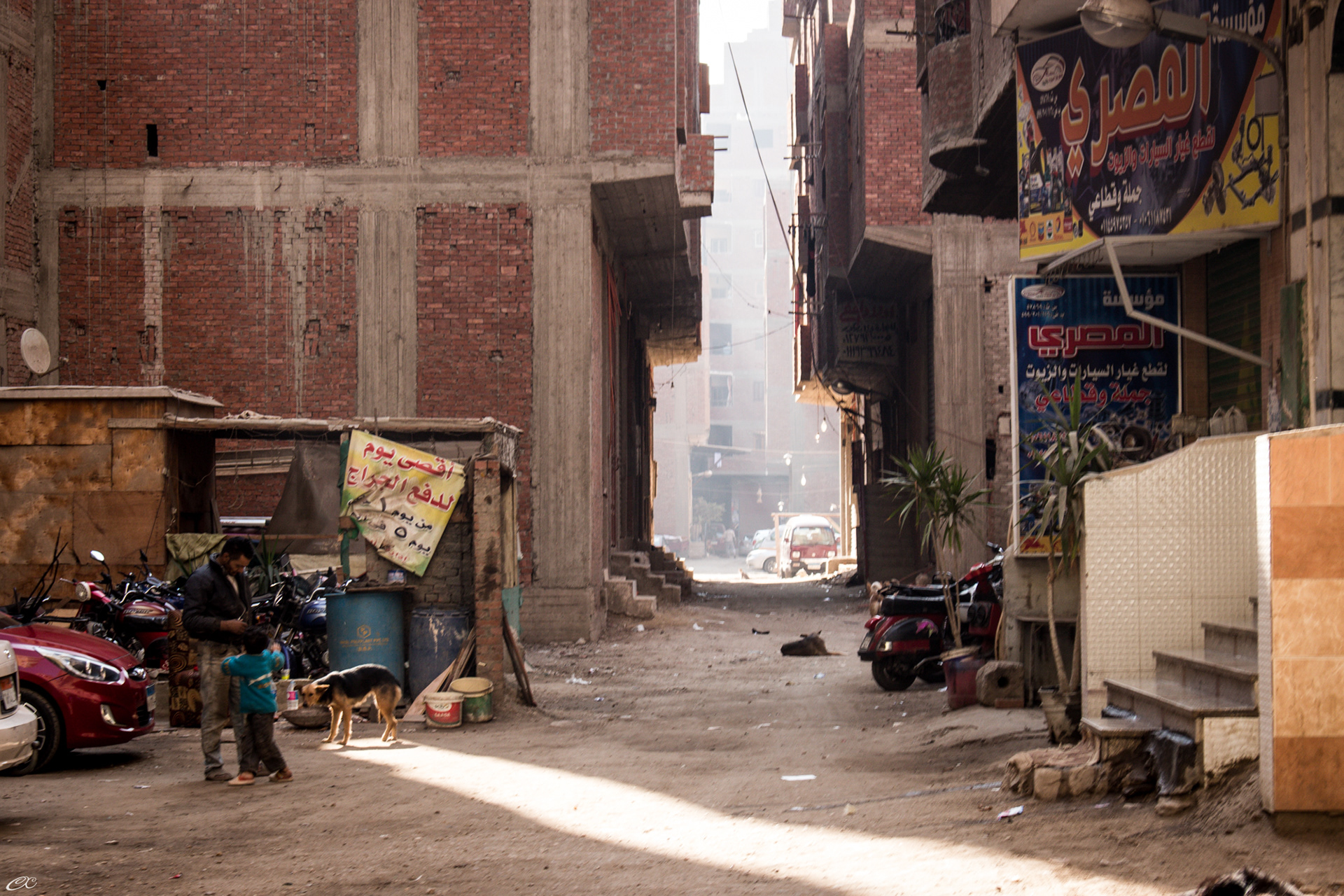
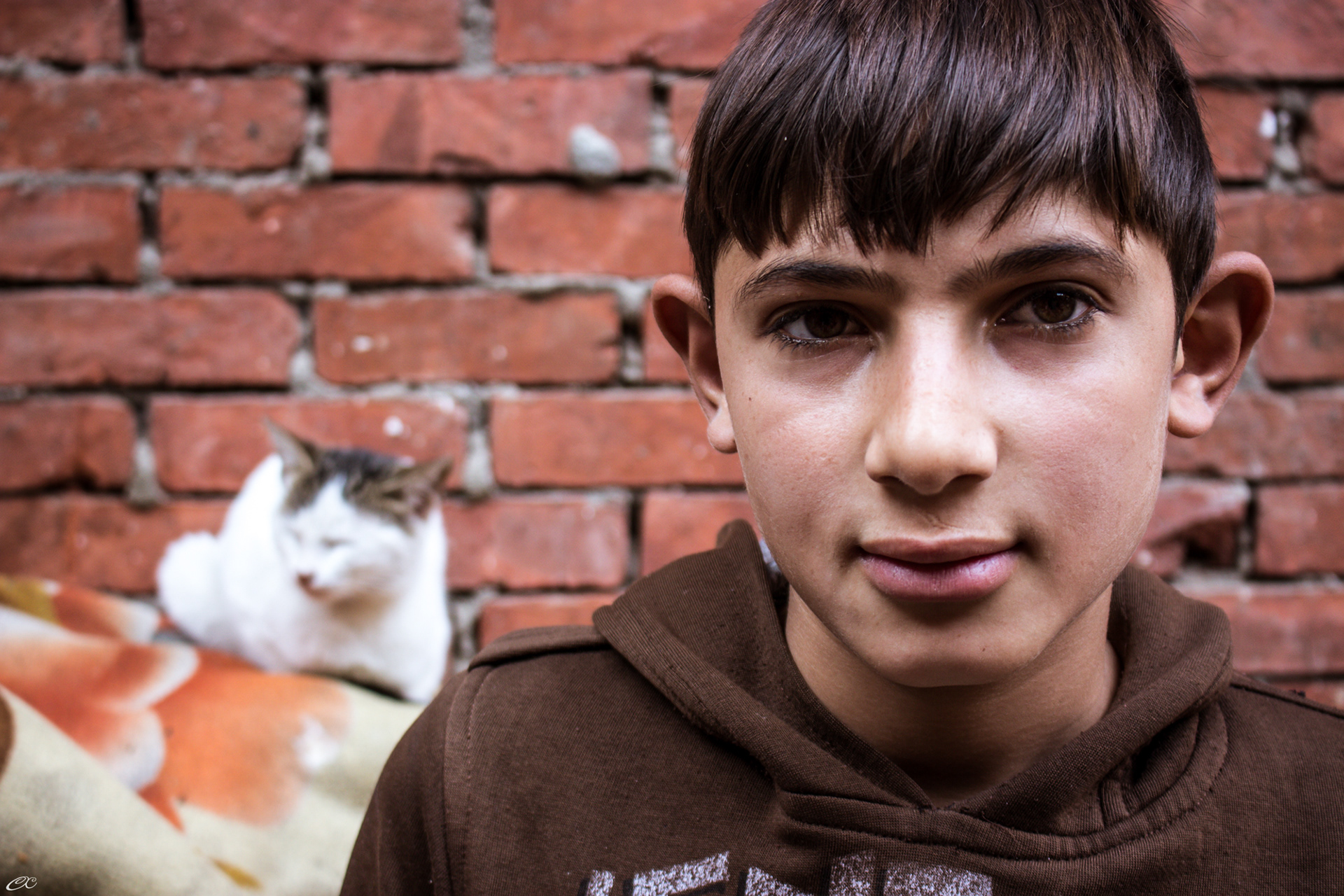
The Golden Island – There is a Golden Island on the middle of the river Nile, where there are no cars and you can find some tranquility. It is called Gezeeret El Dahab. The government wants to build there a luxurious hotel. For years, the inhabitants resist the order of expulsion. They live poor, mostly from agriculture. //
Il est une Île d'Or au milieu du Nil. Le gouvernment veut y voir construit un hôtel de luxe. Depuis des anées, les habitants résistent à l'ordre d'expulsion.
Poverty in the Golden Island - The animals we saw in Gezeeret El Dahab were mostly skinny.
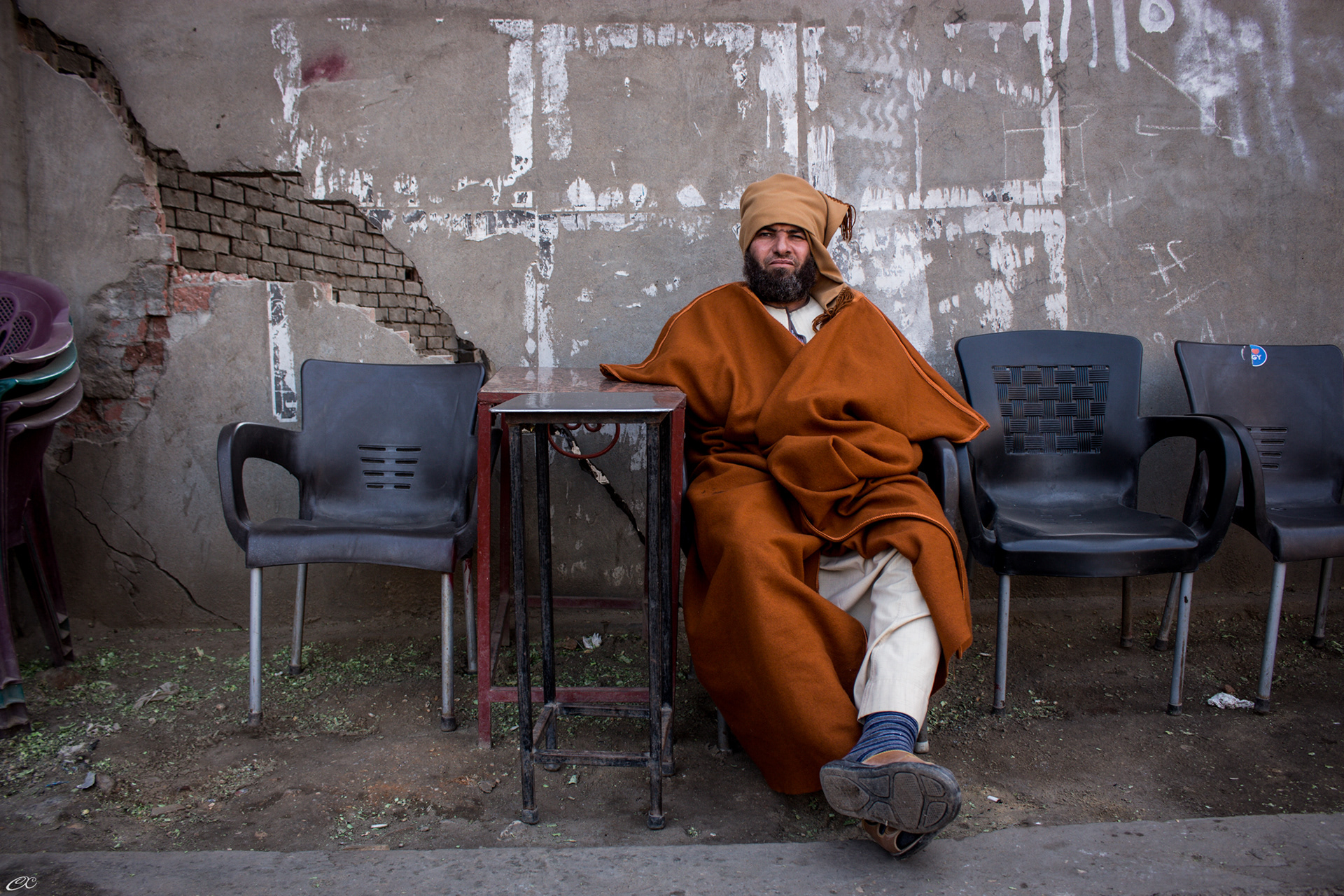
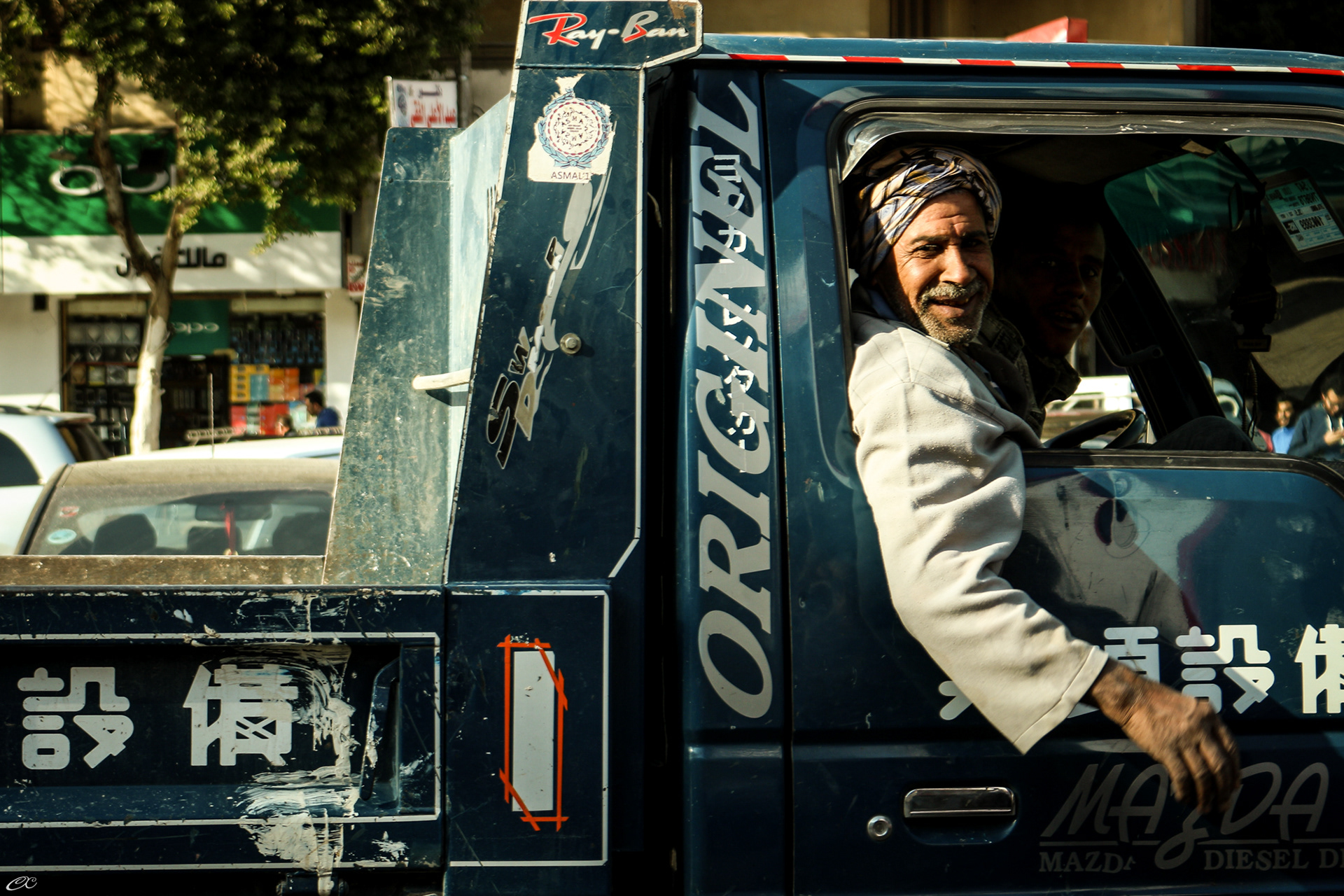
Looking through the window of the bus – The roads of Cairo are full of adrenaline, crazy traffic and intense visions. // Les routes du Caire sont pleines d'adrénaline, un traffic fou, e des visions intenses.
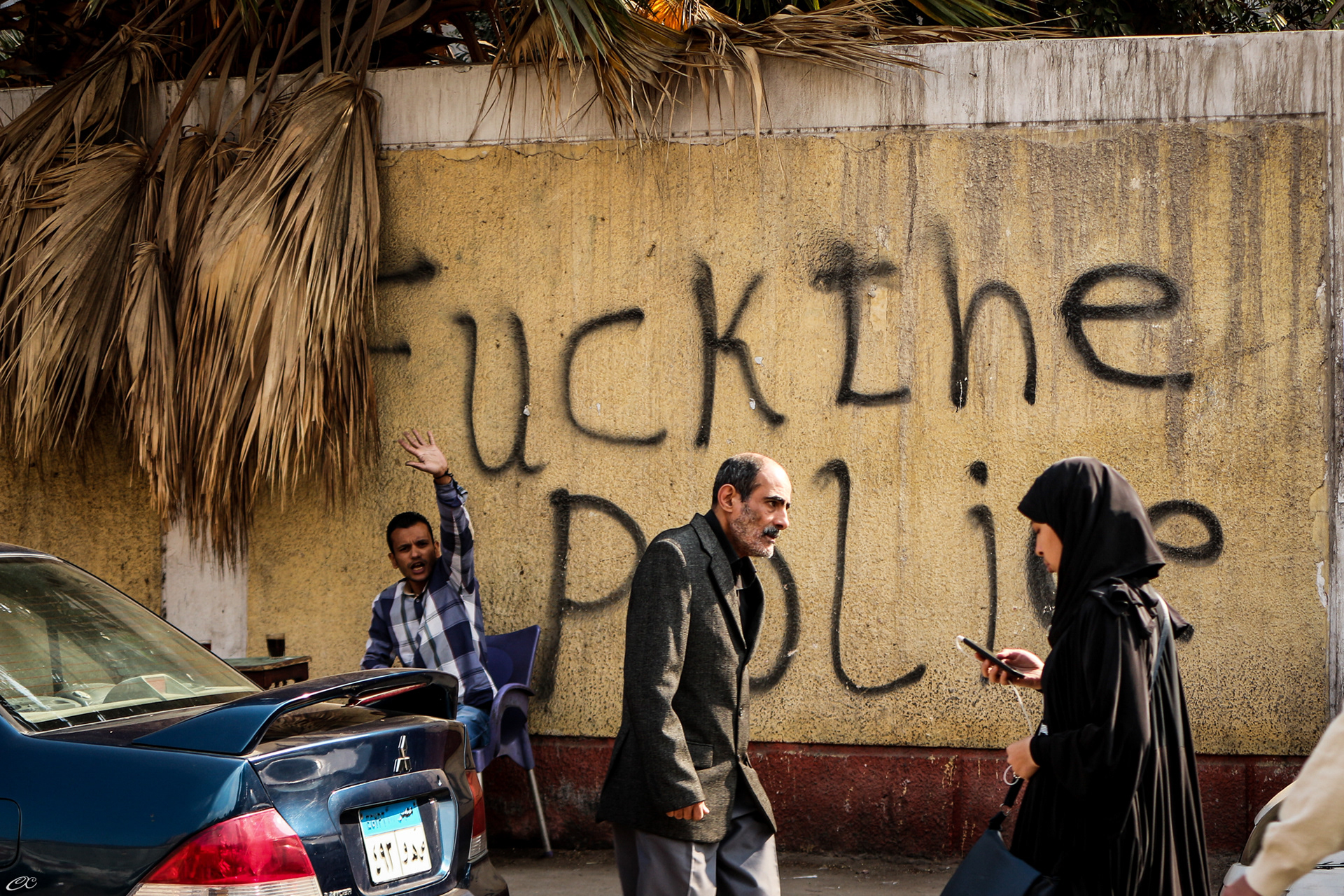

It's always a thrill to be on the crazy roads of Cairo. Even riding the bus is exciting. The doors go open and there is always somebody standing up selling the tickets and screaming our destination to the outside. Usually this man smokes inside but you cannot do it. And then you look outside and get astonished with normal situations like this one, in Giza actually, on the road to the pyramids - somebody on the back of a van sitting in a plastic chair, chilling, and our bus ticket seller half outside pretty much chilling too.
I took this picture from the window of a rolling bus and I was surprised when a friend translated the words on the wall to me:
"Teslam El-Ayady", is a metaphor taken from a song made a couple of years ago, it means "God bless your hands"
It refers to what the military did in 2013 by taking down the president and ruling the country;
"Misr, Al-Elm w El-Eman" means Egypt, the country of Knowledge and Faith;
"Huna Al-Qahira" which means This is Cairo or Here is Cairo
"Teslam El-Ayady", is a metaphor taken from a song made a couple of years ago, it means "God bless your hands"
It refers to what the military did in 2013 by taking down the president and ruling the country;
"Misr, Al-Elm w El-Eman" means Egypt, the country of Knowledge and Faith;
"Huna Al-Qahira" which means This is Cairo or Here is Cairo
I was walking around. The man in the right talked a lot, I didn't understand the words, but he offered me water in a cup and some delicious Dattes. When I asked him if I could take him a picture, he turned his back, but these two friends appeared instead.
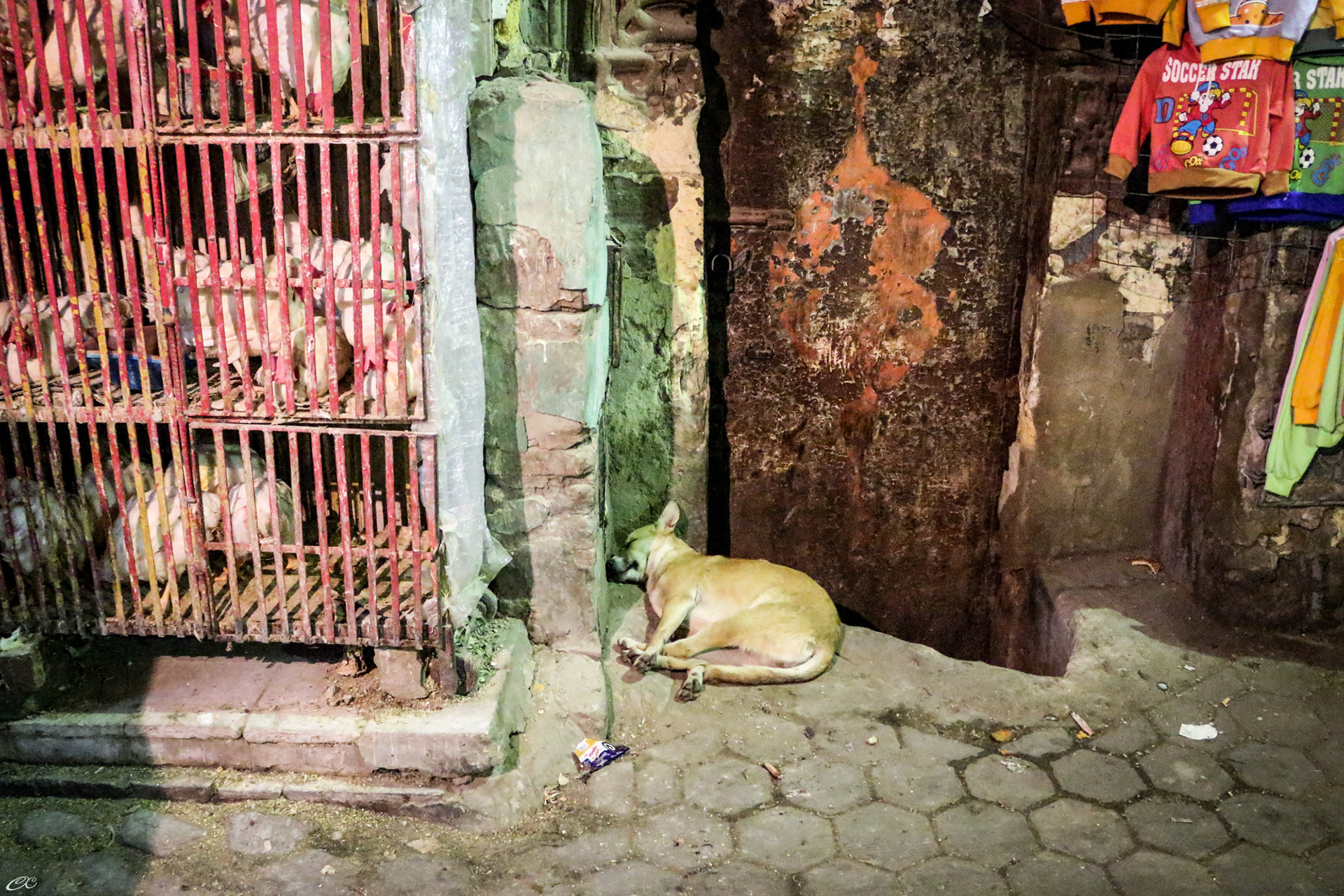
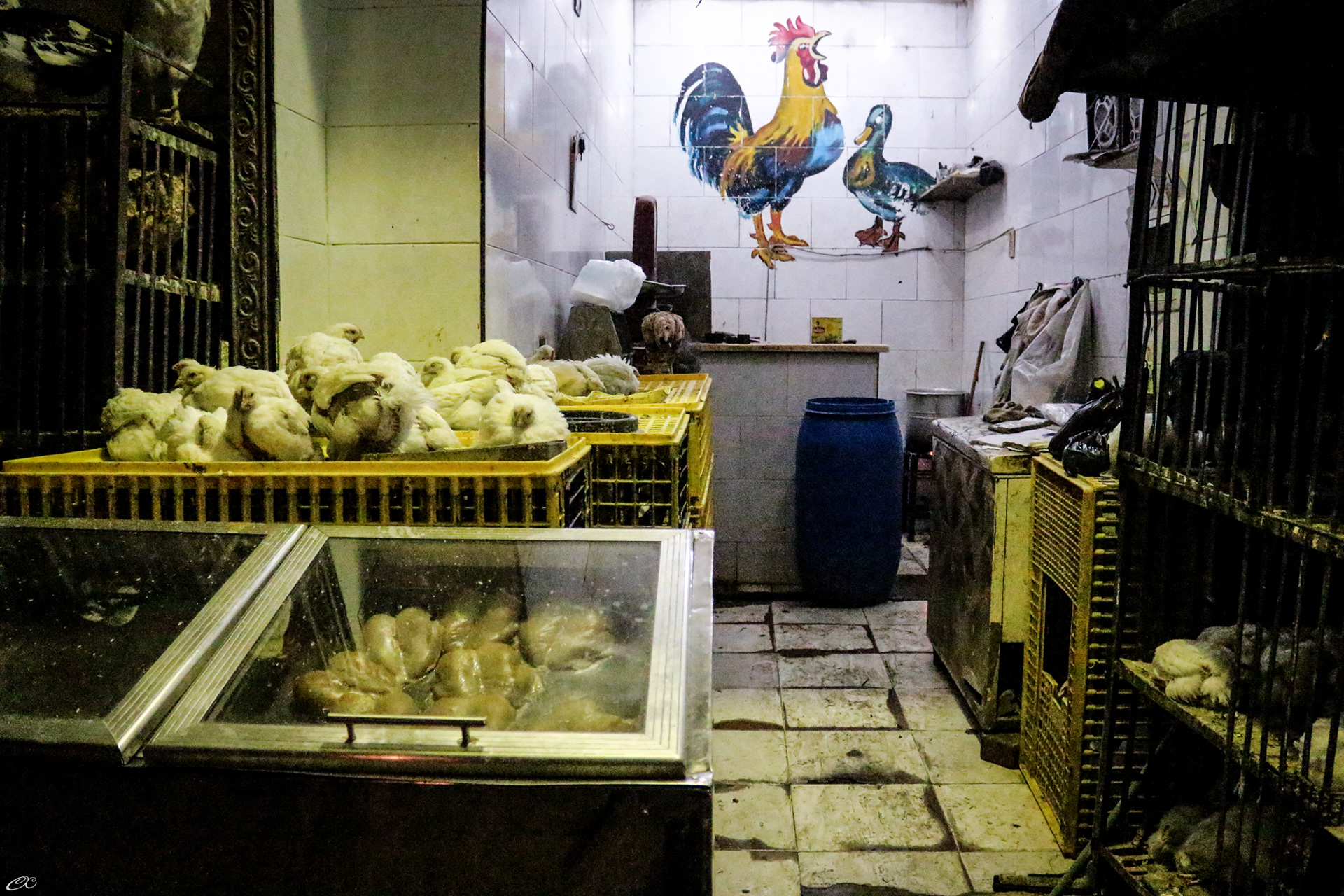
And meanwhile in Cairo, somebody tries to sleep... // Et pendant ce temps au Caire quelqu'un essaye de dormir...
photos and text by:
Oliveira de Carvalho ©
photographer // videographer
open for submissions and suggestions
+33 6 48 60 53 53
carvalho25n@gmail.com

